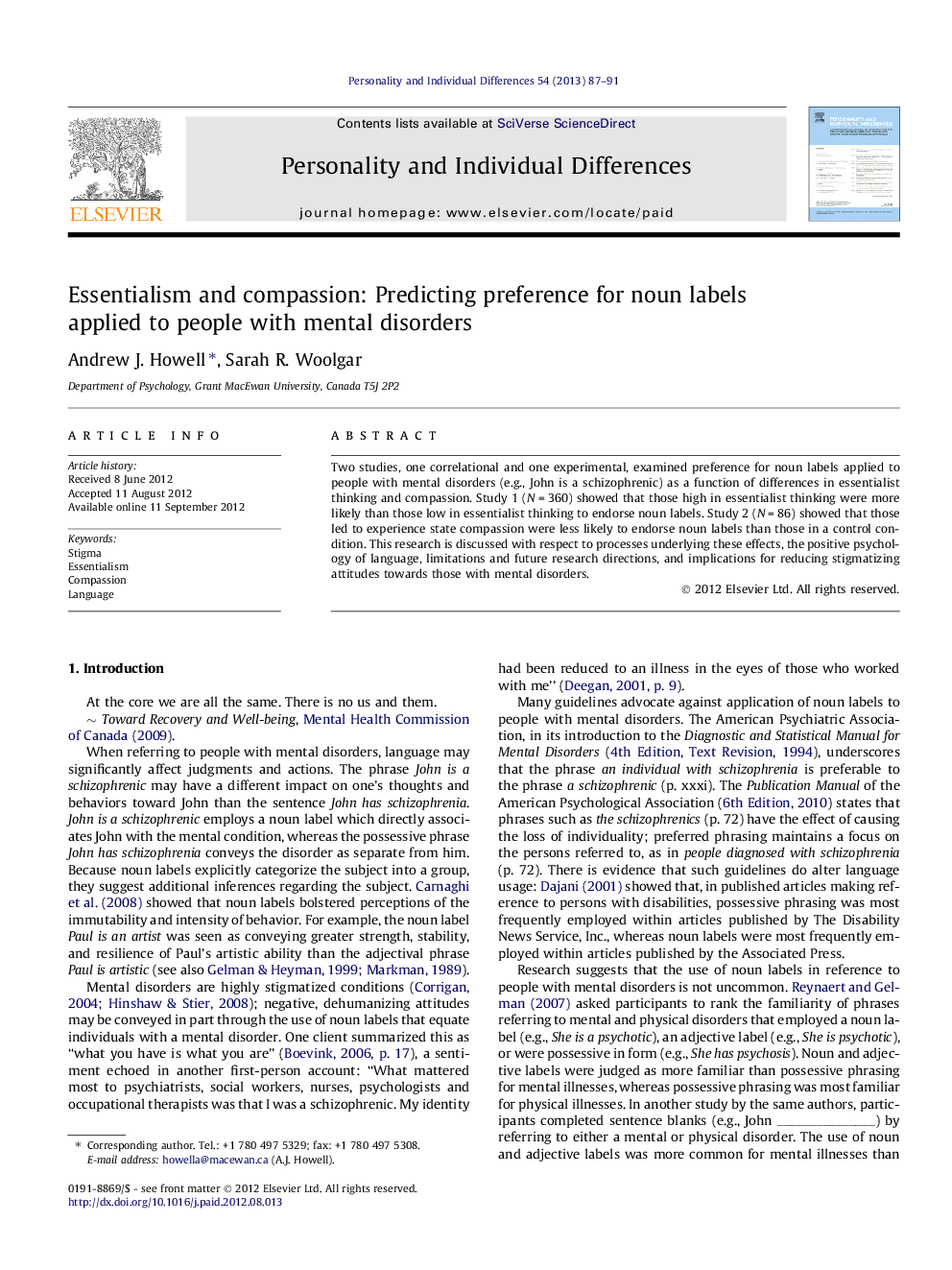| Article ID | Journal | Published Year | Pages | File Type |
|---|---|---|---|---|
| 890920 | Personality and Individual Differences | 2013 | 5 Pages |
Two studies, one correlational and one experimental, examined preference for noun labels applied to people with mental disorders (e.g., John is a schizophrenic) as a function of differences in essentialist thinking and compassion. Study 1 (N = 360) showed that those high in essentialist thinking were more likely than those low in essentialist thinking to endorse noun labels. Study 2 (N = 86) showed that those led to experience state compassion were less likely to endorse noun labels than those in a control condition. This research is discussed with respect to processes underlying these effects, the positive psychology of language, limitations and future research directions, and implications for reducing stigmatizing attitudes towards those with mental disorders.
► Noun labels are often applied to people with mental disorders. ► Essentialism and compassion were examined as predictors of a preference for noun labels. ► High essentialism and low induced compassion predicted noun label endorsement. ► Underlying processes are discussed.
